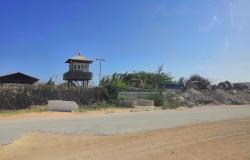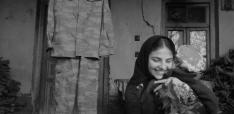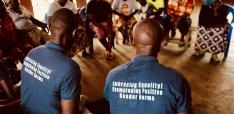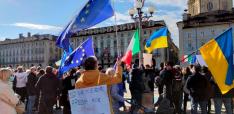Performing the Protection of Civilians Mandate: Experiences of African Military Peacekeepers in the Democratic Republic of Congo and the Federal Republic of Somalia

The Protection of Civilians (PoC) became a central norm in international peacekeeping and often rationalizes the use of force in peace interventions. The successes, failures and ambiguities of the PoC mandate implementation were critically explored in academia and policymaking. Few studies, however, have attended to the views and experiences of uniformed peacekeepers, thus to those actors supposed to implement the PoC mandate. This report provides initial findings on peacekeepers’ experiences. The findings build on 69 narrative interviews with United Nations and African Union military peacekeepers in the Democratic Republic of Congo and Somalia, in which we explored how military peacekeepers described and reflected upon their peacekeeping experiences and what they viewed as successes, shortcomings and challenges. The report tries to stay as close as possible to the narratives of the peacekeepers to provide readers with a glimpse into the ways peacekeepers talked about, rationalized, justified, challenged and reflected upon their deployment. We start by assessing peacekeepers’ initial reaction when they received the order for the deployment to a peacekeeping mission. Second, we outline their experiences in performing the PoC mandate focussing on peacekeepers’ own understanding of their roles as protectors of civilians and the challenges they described relating to civilians and differentiating them from combatants. Their role understanding is directly linked to the gendered character of peacekeeping which we discuss in a third section. Fourth, we outline how soldiers identified barriers, discussed the need to work with intermediaries and how this impacts the distribution of trust in peacekeeping before we finally show how peacekeepers thought about the request to find ‘African solutions for African Problems’.
Policy Recommendations
Based on our findings, we propose the following recommendations for the training of future and returning peacekeepers and policy:
- To foster language skills amongst peacekeepers especially when they are regularly redeploy to the same countries to improve everyday communication with and understanding of civilians. Improved language skills would not only avoid overly relying on a few interpreters or the host county’s army for translation, but also create more opportunities for peacekeepers to engage with the host population to counter prejudices and attitudes of othering.
- To prepare peacekeepers for opposition and resistance by the civilian population, including information and discussion of the (often contested) history of peacekeeping in the pre-deployment training curriculum.
- Provide avenues for the development of a self-reflective and critical engagement with the role of peacekeepers that is not solely centred on the idea of protector and peace bearer.
- To encourage TCCs to constructively work on military masculinities and gender perceptions enshrined in military culture, as well as incorporating these into the pre-deployment training curriculum.
- To provide mental health support within TCCs and peacekeeping missions to ensure that mental and physical wellbeing is regarded of equal importance.
- For missions to diversify the operationalisation of their protection mandate and seek solutions to protection of civilians in volatile operational environments (e.g. how to differentiate between civilians and combatants).
- To increase efforts and resources put into trust- and relationship-building within the mission environment to improve relations and confidence between civilians and peacekeepers, peacekeepers and the host country’s army, as well as among peacekeepers themselves. Initiatives ought to go beyond current CIMIC measures and public relations campaigns; they require a stronger strategic footing and more effective operational and tactical means in order to counter the mission’s politicization by host governments and their political opposition.
- To build on African solidarity in peacekeeping and advance the UN’s existing regional cooperation with the AU, as well as European/US’ support for African peacekeeping with finances, equipment and training.
As others have pointed out before, the findings also highlight the need:
- For peace operations to be staffed and equipped appropriately taking into account challenges such as persisting volatility, geographical vastness of the mission environment, poor infrastructure, and influence of neighbouring countries.
- To pursue political solutions diplomatically while peace operations are deployed and ensure political processes complement peacekeeping means.


